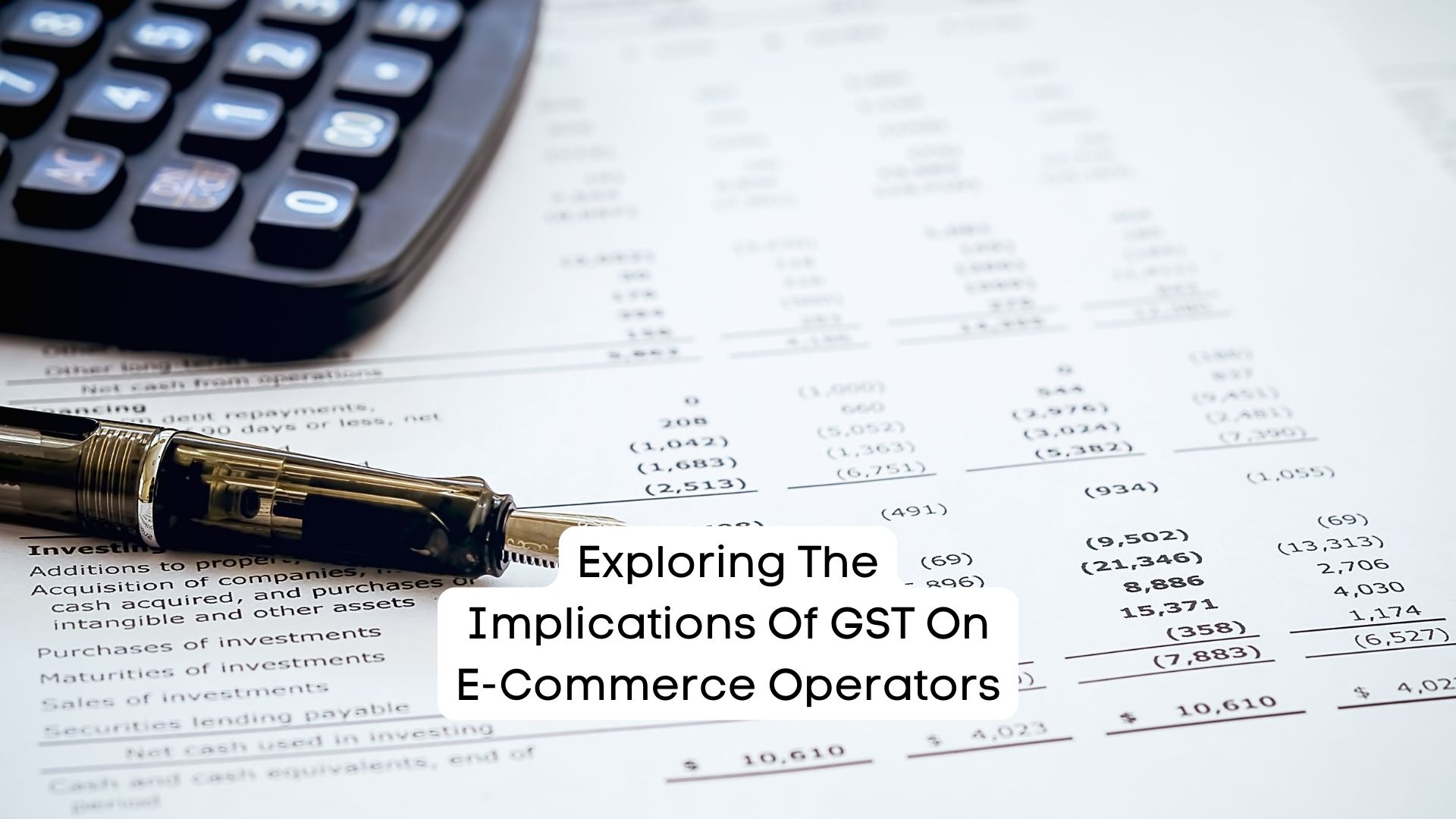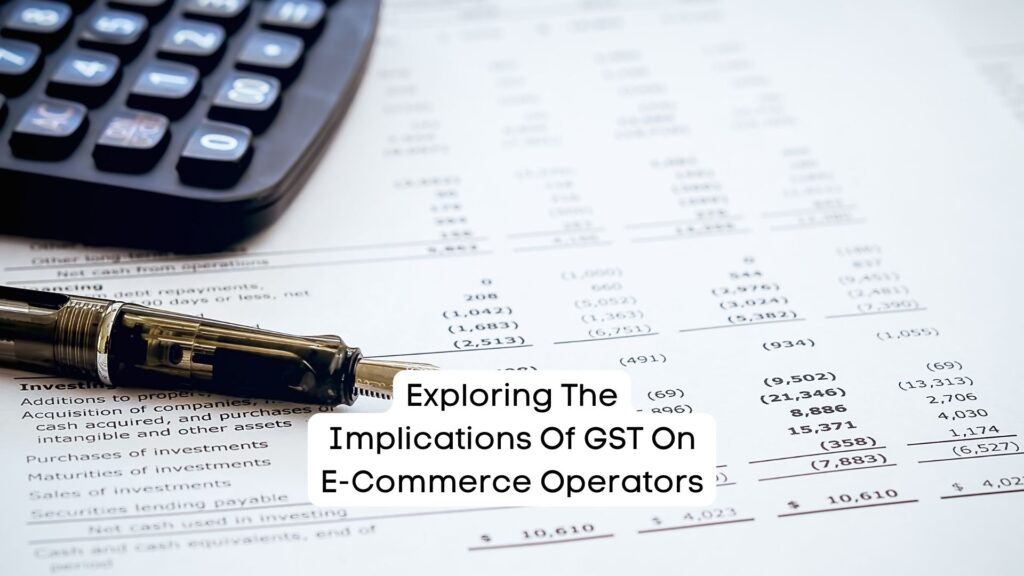
22 Feb Exploring the Implications of GST on E-Commerce Operators

E-commerce businesses find themselves in a unique position under the Goods and Services Tax (GST) regime, thanks to provisions like Tax Collection at Source (TCS). The definition of e-commerce under GST encompasses a wide range of digital transactions involving goods, services, and digital items.
Before delving into the analysis of how GST impacts e-commerce operators, it’s essential to understand the landscape of E-Commerce Companies in India.
Understanding E-Commerce in India:
E-commerce, broadly defined as the buying and selling of goods or services online, has become ubiquitous in India’s commercial landscape. From online retail giants to payment gateways and internet banking services, e-commerce encompasses a wide array of digital transactions.
Under the CGST Act 2017, e-commerce is described as the delivery of goods or services through electronic networks. This definition is crucial, especially concerning e-commerce operators that lack a physical presence in taxable territories.
Types of E-Commerce Platforms:
E-commerce platforms can take various forms:
- E-commerce operator/marketplace (e.g., Flipkart, Amazon): Entities that own or operate digital platforms facilitating e-commerce.
- Suppliers/aggregators on e-commerce platforms: Entities offering goods or services via e-commerce platforms.
Understanding E-Commerce Operators (ECOs):
An e-commerce operator is any entity operating a digital platform for e-commerce activities. For example, Amazon and Flipkart serve as e-commerce operators by enabling third-party sellers to transact on their platforms. However, when these platforms sell their products, they’re not considered e-commerce operators.
GST Registration Obligations for E-Commerce Operators:
According to the CGST Act 2017, e-commerce businesses are required to register for GST, irrespective of their supply value. Foreign e-commerce operators without a physical presence in India must appoint an agent for operations and register for GST.
Taxation and Compliance for E-Commerce Operators:
E-commerce transactions involve multiple parties, including suppliers, customers, and the e-commerce operator. GST applies to transactions between suppliers and buyers, as well as commissions paid by suppliers to e-commerce operators.
Tax Collection at Source (TCS) and E-Commerce Operators:
TCS mandates e-commerce operators to collect tax at a rate of 1% on the net value of taxable supplies made through their platforms. However, if sales returns exceed sales in a month, TCS isn’t applicable.
Filing Requirements for E-Commerce Operators:
E-commerce operators must file GSTR-1, GSTR-3B, and GSTR-8 monthly, along with an annual return (GSTR-9B). It’s crucial for the information provided by e-commerce operators to match that of suppliers to avoid discrepancies.
Key Considerations for E-Commerce Operators:
- Compliance with information requests from tax officials.
- Proper documentation for warehouses used by suppliers.
- Exemptions for zero-tax or exempted items.
- TCS exemptions for certain transactions.
Conclusion:
While GST compliance poses challenges for e-commerce operators, it also streamlines operations and benefits local suppliers. The uniform tax structure encourages more businesses to venture online, unlocking vast market opportunities and fostering growth in the e-commerce sector.


No Comments